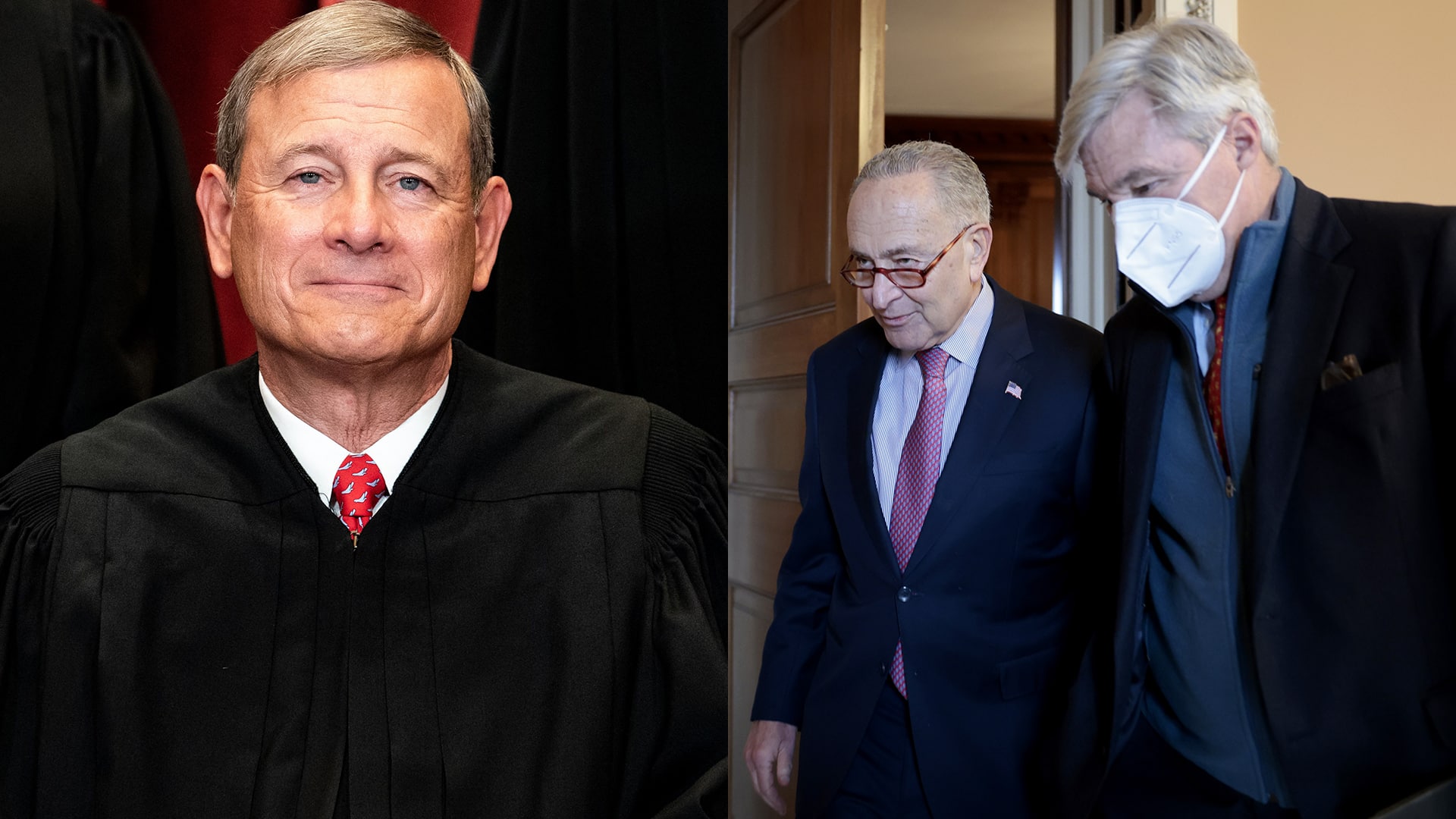OPINION: This article may contain commentary which reflects the author's opinion.
The Supreme Court has hit back at suggestions that Justice Samuel Alito could have violated ethics standards by talking about a decision in a 2014 case involving Hobby Lobby before it was published.
Democrat Sen. Sheldon Whitehouse and Rep. Hank Johnson, who chair committees on the federal courts, penned a letter to Chief Justice John Roberts and asked if the court had “opened an investigation” into Alito allegedly leaking the “Burwell v. Hobby Lobby” decision, the Washington Examiner reported.
“There is nothing to suggest that Justice Alito’s actions violated ethics standards. Relevant rules balance preventing gifts that might undermine public confidence in the judiciary and allowing judges to maintain normal personal friendships,” an attorney for the Supreme Court, Ethan Torrey, said.
It came after a former anti-abortion leader alleged that the person who leaked a Supreme Court decision prior to the decision on Roe V Wade ending has been found.
Rev. Rob Schenck said, in a letter to Chief Justice John Roberts and in interviews with The New York Times, that he was informed of a decision in 2014 on a case involving contraception and religious rights weeks before the decision was announced, The New York Times reported.
“He used that information to prepare a public relations push, records show, and he said that at the last minute he tipped off the president of Hobby Lobby, the craft store chain owned by Christian evangelicals that was the winning party in the case,” The Times said.
Both of the decisions, this one and the one that ended Roe V Wade, were penned by Justice Samuel Alito but unlike the Roe V Wade decision, which was leaked by Politico, the 2014 decision was only shared with a handful of people.
The insinuation by the reverend in his letter to the Chief Justice was that it was Justice Alito who leaked the 2014 decision.
“Dear Chief Justice Roberts,
“There is no reason you would remember our brief encounters over the years , but we have met and exchanged pleasantries on several occasions over your tenure at the Court . I write to inform you of a series of events that may impinge on the investigation you and your delegates are undertaking in connection with the leak of a draft opinion,” the reverend said.
“Back in June 2014, when so many awaited the Court’s opinion in Burwell Hobby Lobby, was informed by a donor to the Capitol Hill-based non-profit organization led that she and her husband would be dining at the home of Justice and Mrs. Alito. She suggested that in their table conversation, she might be able to learn the status of the case, something she knew had an interest in knowing. I received a follow -up message from her notifying me she had indeed obtained the information during that visit. We spoke on the phone, and she detailed the revelation. As recall, we talked about the Green family, owners of Hobby Lobby, and how they, too, would be interested in this information,” he said.
“Over the ensuing three weeks, kept this sensitive information to myself, undetectably using it to assist me in preparing for the inevitable announcement. Then, a day or two before the opinion was released, I called Mr. Steve Green, CEO of Hobby Lobby, and reported what knew of the Courts finding. He thanked me, and we did not speak again about it until October of that year.
“Considering there may be a severe penalty to be paid by whoever is responsible for the initial leak of the recent draft opinion, thought this previous incident might bear some consideration by you and others involved in the process. Of course, I would be happy to fully cooperate should you find any value in other details surrounding what I have transmitted here,” he said.
The New York Times reported:
The evidence for Mr. Schenck’s account of the breach has gaps. But in months of examining Mr. Schenck’s claims, The Times found a trail of contemporaneous emails and conversations that strongly suggested he knew the outcome and the author of the Hobby Lobby decision before it was made public.
Mr. Schenck, who used to lead an evangelical nonprofit in Washington, said he learned about the Hobby Lobby opinion because he had worked for years to exploit the court’s permeability. He gained access through faith, through favors traded with gatekeepers and through wealthy donors to his organization, abortion opponents whom he called “stealth missionaries.”
The minister’s account comes at a time of rising concerns about the court’s legitimacy. A majority of Americans are losing confidence in the institution, polls show, and its approval ratings are at a historic low. Critics charge that the court has become increasingly politicized, especially as a new conservative supermajority holds sway.
